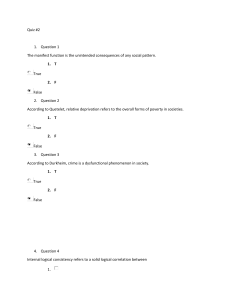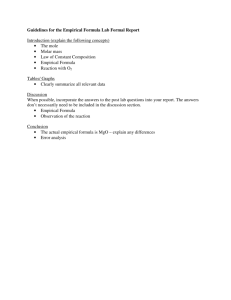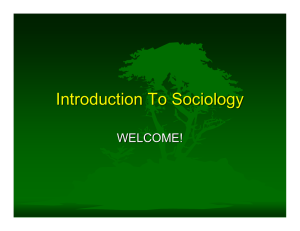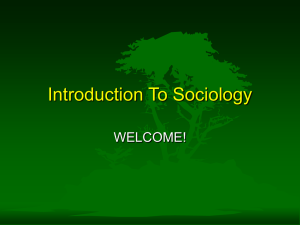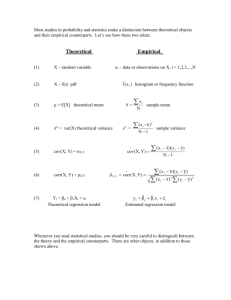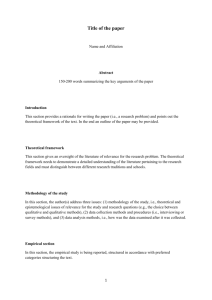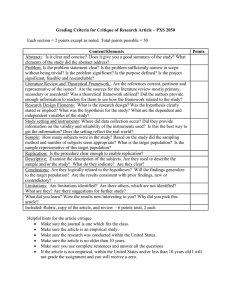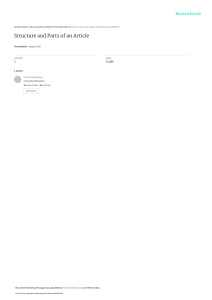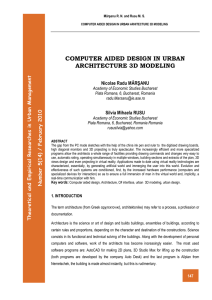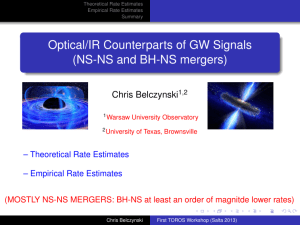Slide 1 ___________________________________
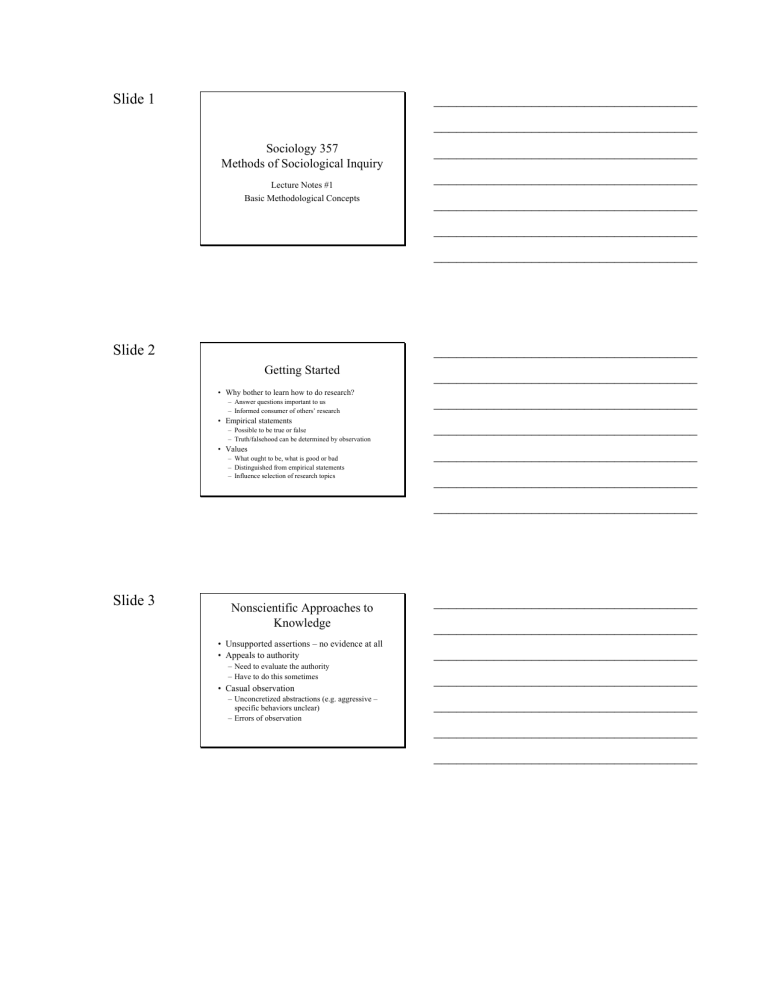
Slide 1
Slide 2
Slide 3
Sociology 357
Methods of Sociological Inquiry
Lecture Notes #1
Basic Methodological Concepts
___________________________________
___________________________________
___________________________________
___________________________________
___________________________________
___________________________________
___________________________________
Getting Started
• Why bother to learn how to do research?
– Answer questions important to us
– Informed consumer of others’ research
• Empirical statements
– Possible to be true or false
– Truth/falsehood can be determined by observation
• Values
– What ought to be, what is good or bad
– Distinguished from empirical statements
– Influence selection of research topics
___________________________________
___________________________________
___________________________________
___________________________________
___________________________________
___________________________________
___________________________________
Nonscientific Approaches to
Knowledge
• Unsupported assertions – no evidence at all
• Appeals to authority
– Need to evaluate the authority
– Have to do this sometimes
• Casual observation
– Unconcretized abstractions (e.g. aggressive – specific behaviors unclear)
– Errors of observation
___________________________________
___________________________________
___________________________________
___________________________________
___________________________________
___________________________________
___________________________________
Slide 4
Errors of Observation
• Inaccurate observation: Simply wrong about what you think you saw
• Overgeneralization: Correct about what you saw, but apply it too broadly
• Selective observation: Only notice what supports your view
___________________________________
___________________________________
___________________________________
___________________________________
___________________________________
___________________________________
___________________________________
Slide 5
Scientific Approach to Knowledge
• Empiricism: take sensory input from the world
• Objectivity: different people can observe the same inputs and “see” the same thing
– Reliability: observations can be consistently made over time and by different people (about observation)
– Validity: theoretical/conceptual interpretation of observations is correct (about link between observation and theory)
• Controlled observation to eliminate sources of error in observation
• Knowledge as tentative, subject to further refinement
___________________________________
___________________________________
___________________________________
___________________________________
___________________________________
___________________________________
___________________________________
Slide 6
Scientific Attitude
• Knowing better than not knowing
• About things outside you, not introspection
• Respect the evidence, prefer unpleasant truth to self-delusion
• Always tell the truth about your research, no matter what
• Recognizes the boundaries of expertise
___________________________________
___________________________________
___________________________________
___________________________________
___________________________________
___________________________________
___________________________________
Slide 7
Studying People
• Free will vs. social patterns
– Social constraints on choices (e.g. money, laws)
– Social effects on choices lead people to want to behave in certain ways
• Probabilistic thinking
– Recognize both the general tendency and the variation around that tendency
• Understanding (verstehen) vs prediction, explanation
___________________________________
___________________________________
___________________________________
___________________________________
___________________________________
___________________________________
___________________________________
Slide 8
The Scientific Process
Theory
Empirical Generalizations
Observation
Predictions (hypotheses)
___________________________________
___________________________________
___________________________________
___________________________________
___________________________________
___________________________________
___________________________________
Slide 9
Theory
• Not “idle speculation” but coherent accounts of how things work
• Theory is part of science: making sense of what the distinct observations mean, how they are related
• Abstractions are concretized: theoretical elements have connections to empirical phenomena
• Explanation and prediction as equivalent
___________________________________
___________________________________
___________________________________
___________________________________
___________________________________
___________________________________
___________________________________
Slide 10
Goals of Scientific Research
• Description. Accurate description of what is actually happening is the bedrock of science.
– Comparative description documents changes over time or differences between subjects.
• Explanation and Prediction. Provide a theoretical account for observations as part of a larger understanding of how the world works, and predict future observations
• Understanding. Of people, why they do what they do. Of social systems, how they work and why they work that way.
___________________________________
___________________________________
___________________________________
___________________________________
___________________________________
___________________________________
___________________________________
Slide 11
Research Steps
• Define a problem of interest
• Identify empirical questions within that problem
• Use/create a general theoretical framework for understanding the problem
• Concretize the concepts in the theory
– operationalize the variables
• Define the sample
• Collect data
• Analyze data
• Draw conclusions
___________________________________
___________________________________
___________________________________
___________________________________
___________________________________
___________________________________
___________________________________

